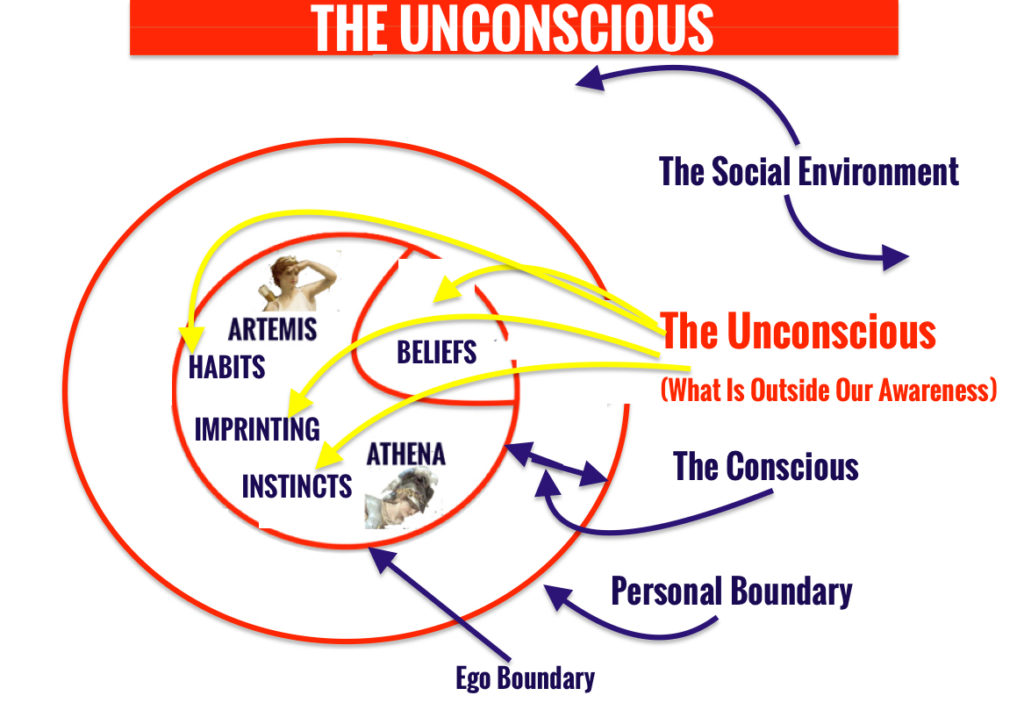The conscious mind has been a core interest of philosophers throughout history. It has been referred to in many ways, from Aristotle to Freud. In Romantic Dynamics, we seek to get more precise and circumscribed about what it means exactly and how we can make the definition practical to ourselves.
And so for our purposes, we will view the conscious mind as those mental processes that operate within our conscious awareness, and in our control. One easy way of seeing this is that Observing Ego is the necessary skill to do so - a feature of the Higher Brain which comes with character maturity, and prevents regret by way of seeing "our internal processes" as well as our "social surroundings," to make a match between the two which goes well for our goals and status among others.
The conscious mind would then include such functions as the ability to use language, to strategize, to communicate, to work in partnership and collaboration, to have solid, mature boundaries with others, to be aware of our own emotions and what to do with them (Emotional Intelligence), and to do all the "executive functions" such as calculation, problem solving and decision-making.
Some philosophers see the conscious mind as composing what is called "a person," in which one has cognitive (intellectual, left-brained and right-brained thought, emotional, and volitional (decision-making) capacity), with a sense of rights and privacy (the personal boundary).
Making the unconscious, conscious is one of the goals of psychoanalysis - to become aware of our own instincts and habits, but to put them to good constructive use in mature character. It is also a general personal growth goal for many people to become aware of their hidden, unconscious belief systems and memories.
The functional set of processes that Romantic Dynamics seeks to assign to the general notion of the conscious is what we call, "The Higher Brain." The inner "software" of the mind which deals with problem solving, partnership, commitment, and all the human virtues of maturity and high character. It is the area of concern for the modern Positive Psychologists and those who like the brand name, Emotional Intelligence.
In Romantic Dynamics, we conceive of two kinds of "boundaries" within the mind, seeing the mind as a "3D" structure which has an exterior, personal boundary, forming an interface with the outside world. And an interior "boundary" that we call the "Ego Boundary," which demarcates what is conscious from what is unconscious to us, on the inside, and isn't necessarily expressed to the outside world or social environment (unless we do what is called "acting out," an ego defense in which a person's unconscious instincts and drives directly expresses into the environment and social scene.)
The prime way to start becoming aware of your own unconscious processes to make them conscious is to employ that most important skill of personal growth, called Observing Ego, which allows you to "see" what's going on inside yourself, what's going on outside yourself, to make a match between the two which is effective at getting to your goals, and general awareness of your own mental processes, both conscious and unconscious. It gives you the ability to say and do the "right thing in the right way at the right time." Observing Ego then has a role in helping you make the unconscious, more conscious.
We view what Freud called the "Unconscious" as the "Reptilian Brain" and the Conscious as the "Higher Brain." The "subconscious" is akin to the emotional knowledge of the "Mammalian Brain," which acts as a set of signals telling us that we need to think deeper and further on an issue, until it becomes fully conscious.


